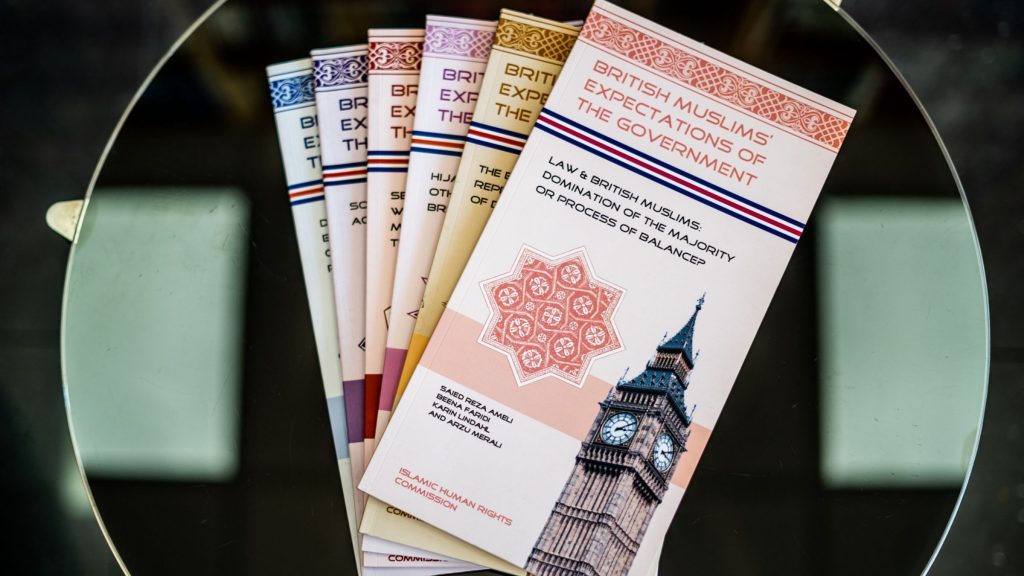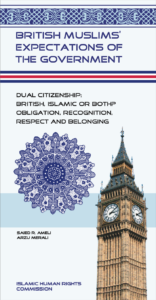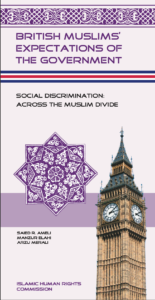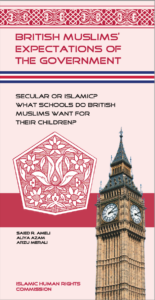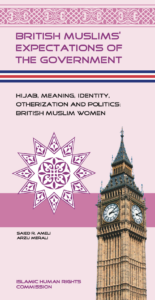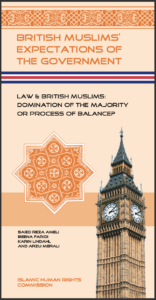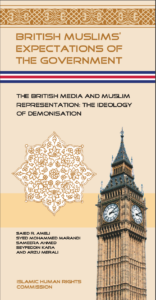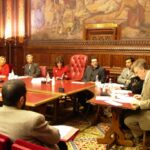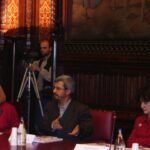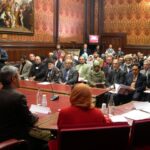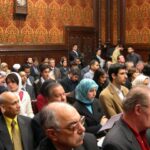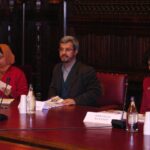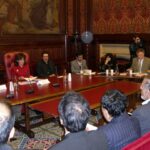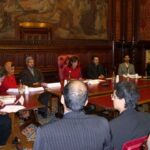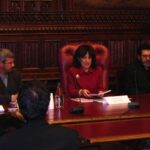Funded by the Joseph Rowntree Charitable Trust, the British Muslims’ Expectations of the Government (BMEG) project saw IHRC deliver sophisticated research based on quantitative and qualitative research on the expectations that Muslims in the UK had of the government. The six reports published looked at: citizenship, discrimination, education and schools, hijab, law and media.
The first two reports were launched at the UK Parliament in the House of Lords in December 2004. Watch a short video of the launch below, and find links to download the PDFs (free) or order print versions (£3), more about the project and some key media coverage below.
The reports
Volume 1: Citizenship Downloadable pdf [download summary] [order print version] Read more about the report here.
Volume 2: Discrimination Downloadable pdf [download summary] [order print version] Read more about the report here.
Volume 3: Education Downloadable pdf [download summary] [order print version] Read more about the report here.
Volume 4: Hijab Downloadable pdf [download summary] [order print version] Read more about the report here.
Volume 5: Law Downloadable pdf [download summary] [order print version] Read more about the report here.
Volume 6: Media Downloadable pdf [download summary] [order print version] Read more about the report here.
More about the project below the images.
More about the project
The project ran between 2004 – 2007 and involved numerous events, including training days, launches of different reports and media work. Over 1200 Muslims in England, Scotland and Wales were surveyed for this project. Issues they were questioned about ranged from their satisfaction with living in the UK, their feelings of belonging, their experiences of Islamophobia in politics, the media and everyday life and their specific responses to report topics listed above. Crucially they asked Muslims – as citizens and denizens of the UK – what their expectations of the British government were. The findings were eye opening.
From the Foreword of Volume 1:
By interrogating this development in the discourse surrounding British Muslim citizenship, this series aims to provide a point at which serious engagement can be made between British Muslims and their government.
By using quantitative and qualitative research, as well as case studies, the British Muslims’ Expectations of the British Government series is charting, from the ground up, what the key areas of concern for Muslims are and what they as participants in the social order expect the government’s engagement with them as individuals, communities, a religious minority and above all as active and equal participants in the business of society, to be.
This engagement is one that is urgently needed to prevent the increasing polarisation, indeed fragmentation, of society into the haves and have-nots of stake-holding – not through poverty or lack of education – but a hitherto top-down discussion of what citizenship should be and should mean – for Muslims in Britain.
The project hoped to bring about a truly open and beneficial discussion aimed at changing policies and perceptions of a much maligned community whose diversity and sophistication is still being ignored and condemned in an alarming and dangerous manner. The project was undergirded by the idea of citizenship as belonging, and questioned whether, as mainstream narratives claimed, Muslims did not feel loyalty or affinity to the UK. It not only asked Muslims across the UK about this issue, it challenged the British state to provide accommodation and equality to all citizens and denizens ensuring that the emotional aspects of citizenship are fulfilled. As the research found, the British state was not only woefully lacking in this regard, the situation had gotten palpably worse.*
Key media coverage
Read the Financial Times coverage of the first three volumes here. Download it here.
Read The Guardian’s coverage of Volume 6 here. Download it here.
Watch the IHRC Chair speak about the launch of Volumes 1 & 2 on BBC News here.
* Text and content updated 8 July 2022 and 4 and 5 August 2022

